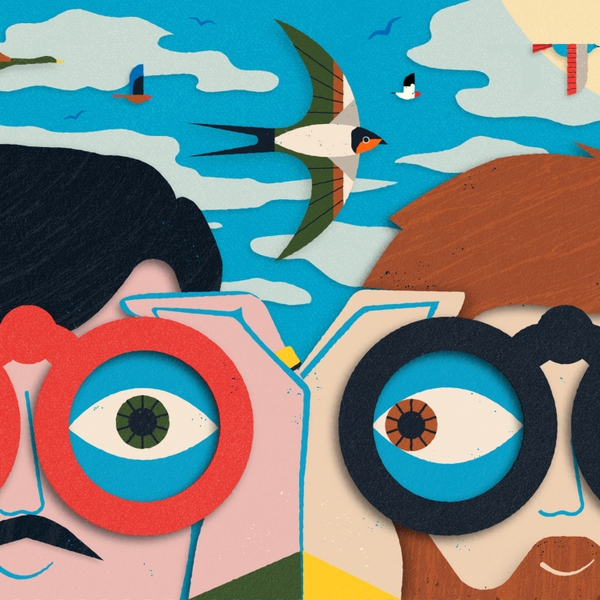The Man I Loved, the Birds He Watched
While getting his PhD in English, Logan Scherer developed an intense friendship with a male grad student that lasted for years, through his friend’s engagement and marriage to a woman. Scherer struggled to make sense of it, until he lost himself in a group of spinster nature writers from the late 19th century who eschewed marriage to live alone or with other women during a time when the language of queerness didn’t exist.
New perk: Easily find new routes and hidden gems, upcoming running events, and more near you. Your weekly Local Running Newsletter has everything you need to lace up! .
On Tuesday, Blake and I downed $2 Miller High Life pints from happy hour to midnight before he came back to my place to watch Rihanna music videos until we passed out in a glorious, boyish stupor. The next afternoon, he invited me to go birding in the arboretum near my apartment in the midwestern college town where we both lived. Even though I was in no shape to hike the woods and silently watch the sky, I dropped everything and went to meet him, still hungover in my sweaty navy booty shorts and tight striped T-shirt. I looked more like a wasted West Hollywood twink kicked out of drag brunch than a birder. But I’d heard Blake talk about his love for birding, and I never thought I’d get lucky enough to go with him. (For his privacy, I’ve changed Blake’s name and identifying details.)
I pounded Kesha’s “C’Mon” in my earbuds and tipsily strutted into the arboretum. It was the last day of June 2013; the peonies were already past their bloom. He was waiting for me by the withered flowers. I nodded; he nodded. We didn’t say much. He led me through the wetlands, along the riverfront trail, into the forest. Once we got to the prairie, he handed me his monocular and directed my gaze upward to a yellow bird he’d never seen before, while he flipped through The Sibley Guide to Birds.
I took off my sunglasses, gazing into the sun, hoping it would sober me up and activate my inner birder. Through slow breaths, I tried my best to transition from mid-bender oblivion to the highest form of concentration.
He asked me the color of the wings, the tail, and the throat, and the shape of the beak, the belly, and the breast. I could barely keep the monocular balanced. I couldn’t even find the bird in the tree he was talking about. By the time I spotted the potential warbler, it was too late. It was flying away.
The truth was, I didn’t care about birds. My birding partner was the only thing I wanted to look at in the arboretum. While Blake combed the sky for flashes of flying yellow, I beheld him: his faded blue polo, his ink-stained Nantucket-red shorts, his ruddy scruff, his blue eyes, the throw of his musky body odor. For the past three years, after meeting in our first class as literature graduate students at a university in the Midwest, we’d become unlikely yet inseparable best friends.
The contradiction of our pairing never ceased to thrill me. Blake was a husky, six-foot former college athlete; I was a little Real Housewives–loving gay boy who couldn’t explain the rules of football to save my life.
He had a wife back in North Carolina. I’d never had a boyfriend.





